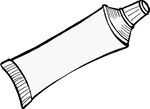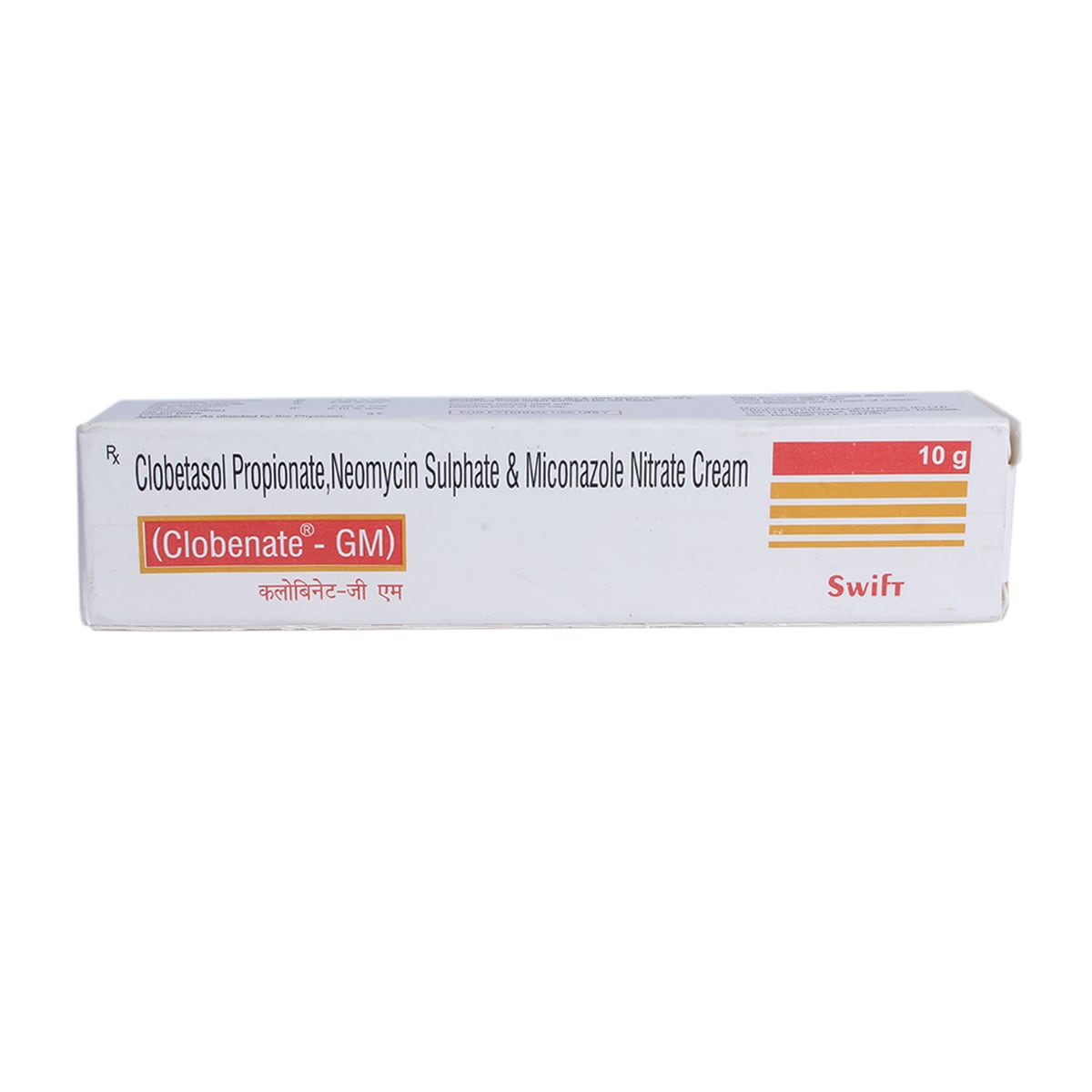Clovate-GM Skin Cream 10 gm


MRP ₹46.5
(Inclusive of all Taxes)
₹7.0 Cashback (15%)
Provide Delivery Location
Online payment accepted
 Prescription drug
Prescription drugWhats That
Manufacturer/Marketer :
Consume Type :
Return Policy :
Expires on or after :
About Clovate-GM Skin Cream
Clovate-GM Skin Cream belongs to a class of dermatological medication ‘Topical Anti-Infectives' combined with Corticosteroids used to treat fungal and bacterial infections of the skin. Also, Clovate-GM Skin Cream helps to reduce swelling, itching, and redness caused due to certain skin problems. Fungal infection is a skin disease in which a fungus attacks the tissue and causes infection. Fungal infections may be contagious (spread from one person to another). Bacterial infection is a condition in which harmful bacteria grow in the body and cause infection. It can infect any part of the body and multiply very quickly.
Clovate-GM Skin Cream is a combination of three drugs, namely Clobetasol (corticosteroid), Gentamicin (antibiotic), and Miconazole (antifungal). Clobetasol belongs to the class of corticosteroids that works by acting inside skin cells and inhibits the release of certain chemical messengers in the body that cause redness, itching, and swelling. When the skin reacts to any allergens, such chemicals are released normally. Gentamicin belongs to the class of antibiotics that works by causing bacteria to produce faulty and abnormal proteins. Thereby, kills the bacteria and clears the infection. The fungal cell membranes are essential for their survival as they prevent the entry of unwanted substances into the cells and stop the leakage of cell contents. Miconazole belongs to the class of antifungals that works by causing holes in the fungal cell membranes and kills fungi.
Clovate-GM Skin Cream is only for external use. Use Clovate-GM Skin Cream as prescribed. Avoid contact of Clovate-GM Skin Cream with nose, ears, mouth, or eyes. In case Clovate-GM Skin Cream comes in contact with these areas accidentally, rinse with water thoroughly. Some people may experience skin peeling, dry skin, thinning of the skin, itching, pain, swelling, redness, irritation, or burning sensation at the site of application. Most of these side effects of Clovate-GM Skin Cream do not require medical attention and gradually resolve over time. However, if the side effects worsen or persist, please consult your doctor.
If you are allergic to Clovate-GM Skin Cream or any other medicines, please tell your doctor. Do not use Clovate-GM Skin Cream in more than prescribed doses, or for a prolonged time as it may cause adverse effects. If you are pregnant or a breastfeeding mother, it is advised to consult a doctor before using Clovate-GM Skin Cream. Clovate-GM Skin Cream is not recommended for children below 1 year of age. Avoid using Clovate-GM Skin Cream on damaged or broken skin or within skin folds. Do not wrap or cover the treated area with airtight dressings unless advised by a doctor. Avoid using Clovate-GM Skin Cream for more than 5 days in children and on the face. Do not swallow Clovate-GM Skin Cream. In case of accidental swallowing, consult a doctor immediately. Avoid smoking or going near naked flames as Clovate-GM Skin Cream catches fire and burns easily. If you have rosacea (redness and often red, small, pus-filled bumps on the face), acne, perioral dermatitis (redness and swelling of the skin around the mouth), psoriasis, glaucoma, cataracts, diabetes, adrenal gland or liver problems, genital itching or other skin problems, inform your doctor before taking Clovate-GM Skin Cream.
Uses of Clovate-GM Skin Cream
Directions for Use
Medicinal Benefits
Clovate-GM Skin Cream is a combination of three drugs, namely: Clobetasol, Gentamicin and Miconazole. Clovate-GM Skin Cream is used to treat fungal and bacterial infections of the skin. Also, Clovate-GM Skin Cream helps to reduce swelling, itching and redness caused due to certain skin problems. Clobetasol is a corticosteroid that acts inside skin cells and inhibits the release of certain chemical messengers in the body that cause redness, itching and swelling. When the skin reacts to any allergens, such chemicals are released normally. Gentamicin is an antibiotic that causes bacteria to produce faulty and abnormal proteins. Thereby, kills the bacteria and clears the infection. The fungal cell membranes are essential for their survival as they prevent the entry of unwanted substances into the cells and stops the leakage of cell contents. Miconazole is an antifungal that works by causing holes in the fungal cell membranes and kills fungi.
Storage
Drug Warnings
If you are allergic to Clovate-GM Skin Cream or any other medicines, please tell your doctor. If you are pregnant or a breastfeeding mother, it is advised to consult a doctor before using Clovate-GM Skin Cream. Clovate-GM Skin Cream is not recommended for children below 1 year of age. Avoid using Clovate-GM Skin Cream on damaged or broken skin or within skin folds. Do not wrap or cover the treated area with airtight dressings unless advised by a doctor. Avoid using Clovate-GM Skin Cream for more than 5 days in children and on the face. Avoid smoking or going near naked flames as Clovate-GM Skin Cream catches fire and burns easily. If you have rosacea (redness and often red, small, pus-filled bumps on the face), acne, perioral dermatitis (redness and swelling of the skin around the mouth), psoriasis, glaucoma, cataracts, diabetes, adrenal gland or liver problems, genital itching or other skin problems, inform your doctor before taking Clovate-GM Skin Cream.
Diet & Lifestyle Advise
- Regularly change your socks and wash your feet. Avoid shoes that make your feet sweaty and hot.
- In wet places such as changing rooms and gym showers, don’t walk barefoot. Wear flip-flops or sandals to prevent fungal infections.
- Do not scratch the affected area of the skin as it can spread the infection to other body parts.
- Avoid sharing towels, combs, bedsheets, shoes, or socks with others to prevent the spread of infection.
- Wash your bed sheets and towels regularly.
- Eat foods rich in quercetin (a flavonoid) such as apples, cherries, broccoli, spinach, and blueberries.
- Consuming food rich in probiotics helps in developing the immune system against allergies.
- Limit intake of food that might trigger allergies such as dairy products, soy, eggs, and nuts.
- Avoid consumption of foods with excess sugar as it may flare up inflammation.
- Include fruits, vegetables, whole grains, healthy fats, and fish in your diet.
- Avoid getting in contact with harsh soaps, detergents, and rough fabrics.
Side Effects of Clovate-GM Skin Cream
- Skin peeling
- Dry skin
- Thinning of the skin
- Itching
- Pain, swelling, redness, ,irritation or burning sensation at the site of application
Habit Forming
Therapeutic Class
All Substitutes & Brand Comparisons
RX
Out of StockLabosol gm Cream
Laborate Pharmaceuticals India Ltd
₹24.52
(₹1.1/ 1gm)
73% CHEAPERRX
Cosvate GM Cream 20 gm
Oaknet Healthcare Pvt Ltd
₹38.5
(₹1.74/ 1gm)
58% CHEAPERRX
Out of StockOlclobee gm Cream
₹29.72
(₹1.78/ 1gm)
57% CHEAPER
Product Substitutes
Author Details
We provide you with authentic, trustworthy and relevant information
FAQs
Clovate-GM Skin Cream contains Clobetasol, Gentamicin and Miconazole. Clobetasol is a corticosteroid that acts inside skin cells and inhibits the release of certain chemical messengers in the body that cause redness, itching and swelling. When the skin reacts to any allergens, such chemicals are released normally. Gentamicin is an antibiotic that causes bacteria to produce faulty and abnormal proteins. Thereby, kills the bacteria and clears the infection. The fungal cell membranes are essential for their survival as they prevent the entry of unwanted substances into the cells and stops the leakage of cell contents. Miconazole is an antifungal that works by causing holes in the fungal cell membranes and kills fungi.
No, Clovate-GM Skin Cream is not used to treat diaper rash as using Clovate-GM Skin Cream under child’s nappy enables Clovate-GM Skin Cream to pass through the skin easily and cause adverse effects. However, please consult a doctor before using Clovate-GM Skin Cream in children.
Yes, Clovate-GM Skin Cream may cause skin irritation at the site of application as a side effect. However, if the irritation worsens or persists, stop using Clovate-GM Skin Cream and consult a doctor.
You are recommended to cover the treated area of skin with bandages or dressings only if advised by your doctor else it may increase the risk of side effects.
No, Clovate-GM Skin Cream is not recommended to treat acne as it may worsen the condition. Clovate-GM Skin Cream is only used to reduce itching, swelling and redness caused due to certain skin infections. However, please consult a doctor before using Clovate-GM Skin Cream.
You are recommended to use Clovate-GM Skin Cream for as long as your doctor has prescribed it. However, if the condition persists or worsen after 2 to 4 weeks of treatment with Clovate-GM Skin Cream, please consult a doctor.
Yes, fungal infection is a contagious skin condition which spreads from one person to another through direct skin to skin contact or by contact with contaminated soil or surfaces and infected animals. Therefore, it is recommended to avoid close direct contact until the infection is clear and avoid sharing things with the infected person as it can also spread the infection.
No, you are not recommended to stop using Clovate-GM Skin Cream without consulting your doctor as it may worsen the condition or cause recurring infection. Therefore, take Clovate-GM Skin Cream for as long as your doctor has prescribed it and if you experience any difficulty while taking Clovate-GM Skin Cream, please consult your doctor.
Drug-Drug Interactions Checker List
- ITRACONAZOLE
- RITONAVIR
- WARFARIN
- DICUMAROL
- ANISINDIONE
Special Advise
Please consult a dermatologist if your skin infection persists for more than 1 month.
Disease/Condition Glossary
Fungal infection: It is a skin disease in which a fungus attacks the tissue and causes infection. Fungal infections may be contagious (spread from one person to another). The symptoms of a fungal infection include scaly skin, blisters, itching, swelling, irritation, and redness. Antifungal medicines are usually used to treat fungal infections.
Bacterial infection: It is a condition in which harmful bacteria enter, infect, and grows in the body. It can target any part of the body and multiply very quickly. Bacteria come in three basic shapes, namely spherical, rod, or spiral-shaped. Bacteria may be gram-positive (have thick cell walls) or gram-negative (do not have cell walls). Appropriate tests are done to identify bacterial strains, and based on the results, proper medication is prescribed. Some common symptoms of bacterial infection include cough, fever, and tiredness.

Have a query?
Buy best Dermatology products by
Others
AYUR
FIXDERMA
BIODERMA
VENUSIA
CANDID
SELSUN
ABZORB
ATODERM
CIPHANDS
KETO
MINTOP
UVAVO
8X
MELALUMIN
MORR
OILATUM
REJUHAIR
SUNCROS
TETMOSOL
UNISON
UV DOUX
ATBRO SAFEXX
BETADINE
COLOPLAST
DR. MOREPEN
HAIR 4U
LA SCREEN
MEDERMA
RING GUARD
SHYN-ON
SOLSET
SUNSTOP
YUVINIE
A-DERMA
AHD
ALCONANZ
AQUAHOLD
AVARTA
AVENE
BIOLINE
BIOWRIGHT
CETRILAK
CUTICOLOR
CUTILOCK
DANDEL PLUS
DEOPHIN
DOUX
DYSIS
ENMASK 50
EXIZOL
FAIR INSTA
GETRYL
GORGEUS
GUNEERA
HAIR YUTH
HH MITE
I-GLOW
ITCH GUARD
KETOFLY
KETOMAC
KETOPZ
KETOSTAR
KZ
LIPZ
MANKIND
MEDRAYS
MELAGARD
MELNORA BLUV
MICROSTERILE
NO SCARS
OAKNET
ONABET
PARASOFT
PERCOS
PHOTON
PHOTOSTABLE
PHYSIOGEL
PROTEK
RADIBAN
RASHFREE
REGALIZ
RENOCIA
SALISIA
SEBANDRO
SEBORBAR
SESTRY
SOLASAFE
SOLECROSS
STERILLIUM
SUDERMA
SUN KROMA
SUNCLIP
SUNHEAL
SUNMATE
SUNTRIS
TAIYU
TEDIBAR
THERUPTOR
TRICOGRO
Glenmark Pharmaceuticals Ltd
Sun Pharmaceutical Industries Ltd
Klm Laboratories Pvt Ltd
Cipla Ltd
Canixa Life Sciences Pvt Ltd
Abbott India Ltd
Ajanta Pharma Ltd
Intas Pharmaceuticals Ltd
Dr Reddy's Laboratories Ltd
East West Pharma India Pvt Ltd
Alkem Laboratories Ltd
Atopic laboratories Pvt Ltd
Hegde & Hegde Pharmaceutica Llp
Brinton Pharmaceuticals Ltd
Torrent Pharmaceuticals Ltd
Amwill Healthcare Pvt Ltd
Leeford Healthcare Ltd
Palsons Derma Pvt Ltd
Oaknet Healthcare Pvt Ltd
Med Manor Organics Pvt Ltd
Micro Labs Ltd
Dermocare Laboratories Gujarat Llp
Fixderma India Pvt Ltd
Apex Laboratories Pvt Ltd
Mankind Pharma Pvt Ltd
Ipca Laboratories Ltd
Yaher Pharma
Systopic Laboratories Pvt Ltd
Menarini India Pvt Ltd
Ethinext Pharma
Nemus Pharmaceuticals Pvt Ltd
Skinocean Pharmaceuticals
Dermacia Healthcare
Inex Medicaments Pvt Ltd
Lupin Ltd
GlaxoSmithKline Pharmaceuticals Ltd
Talent India Pvt Ltd
Zydus Cadila
Kivi Labs Ltd
Zydus Healthcare Ltd
Hbc Dermiza Healthcare Pvt Ltd
Mrhm Pharma Pvt Ltd
Regaliz Medicare Ltd
Sol Derma Pharmaceuticals Pvt Ltd
Newtrimed Healthcare Pvt Ltd
Wallace Pharmaceuticals Pvt Ltd
Eskon Pharma
Glowderma Lab Pvt Ltd
La Pristine Bioceuticals Pvt Ltd
Mohrish Pharmaceuticals Pvt Ltd
Percos India Pvt Ltd
Rockmed Pharma Pvt Ltd
Macleods Pharmaceuticals Ltd
Praise Pharma
Ethicare Remedies Pvt Ltd
Kaizen Drugs Pvt Ltd
Aurel Biolife
Rely On Pharmaceuticals
Wockhardt Ltd
Galcare Pharmaceuticals Pvt Ltd
Elder Pharmaceuticals Ltd
Indiabulls Pharmaceuticals Pvt Ltd
La Med Healthcare Pvt Ltd
Biocute Life Care
Yap Bioceuticals
Yash Pharma Laboratories Pvt Ltd
Zee Laboratories Ltd
Apple Therapeutics Pvt Ltd
Adonis Laboratories Pvt Ltd
Albatross Healthcare Pvt Ltd
Galderma India Pvt Ltd
Prism Life Sciences Ltd
FDC Ltd
Alniche Life Sciences Pvt Ltd
Salve Pharmaceuticals Pvt Ltd
West Coast Pharmaceuticals Pvt Ltd
Dermarex HealthCare India Pvt Ltd
Arka Vital Science Pvt Ltd
Dermajoint India
Gary Pharmaceuticals Pvt Ltd
Grace Derma Healthcare Pvt Ltd
Karlin Pharmaceuticals & Exports Pvt Ltd
Skinska Pharmaceutica Pvt Ltd
Uniza Healthcare Llp
Alembic Pharmaceuticals Ltd
Cadila Healthcare Ltd
Cadila Pharmaceuticals Ltd
Cosmofix Technovation Pvt Ltd
Human Pharmaceuticals
Indolands Pharma Pvt Ltd
Lyra Laboratories Pvt Ltd
Akumentis Healthcare Ltd
Entod Pharmaceuticals Ltd
Iceberg Health Care Pvt Ltd
Jenburkt Pharmaceuticals Ltd
P and P Dermaceuticals Pvt Ltd
Dabur India Ltd
Indchemie Health Specialities Pvt Ltd
Olcare Laboratories Pvt Ltd
Unison Pharmaceuticals Pvt Ltd
BODY CREAM
Body Lotion
Face Cream
Shampoo
Sun Screen
Face Gel
Soap
Face Wash
HAIR SOLUTION
Face Serum
BODY GEL
Hair Lotion
Hair Serum
Dusting Powder
ANTISEPTIC
FACE CLEANSER
Face Lotion
Body Wash
Body Spray
Eye Cream
FUNGAL INFECTION
Foot Cream
Conditioner
Eye Gel
Cleanser
Hair Cream
Hair Oil
Face Mask
Hair Gel
Sanitizer
Hair Spray
Moisturiser
Skin Ointment
Lip Balm
Capsule
Eye Serum
Intimate Wash
Specialty Supplements
Hand Cream
Facial Spray
SPECIALITY SUPPLEMENT
Face Toner
MEDICATED SHAMPOO
Tablet
Talcum Powder
BABY SUNSCREEN
Body Butter
Body Scrub
DIAPER RASH CREAM
EYE SOLUTION
FACIAL WIPE
Gargle
Hand Wash
Intimate Spray
Lip Serum
Lubricant Gel
MEDICATED CREAM
Nail Polish
VITAMIN D
Alcohol
Caution
Interaction of Clovate-GM Skin Cream with alcohol is unknown. Please consult a doctor before consuming alcohol while using Clovate-GM Skin Cream.
Pregnancy
Caution
The safety of Clovate-GM Skin Cream in pregnant women is unknown. Therefore, it is given to pregnant women only if the doctor thinks benefits outweigh risks.
Breast Feeding
Caution
It is unknown whether Clovate-GM Skin Cream is excreted in human milk. It is given to breastfeeding mothers only if the doctor thinks benefits are greater than risks. Do not breastfeed your baby if you have applied Clovate-GM Skin Cream on your breast or nipple.
Driving
Safe if prescribed
Clovate-GM Skin Cream usually does not affect your ability to drive or operate machinery.
Liver
Caution
If you have any concerns regarding the use of Clovate-GM Skin Cream in patients with Liver problems, please consult a doctor.
Kidney
Safe if prescribed
If you have any concerns regarding the use of Clovate-GM Skin Cream in patients with Kidney problems, please consult a doctor.
Children
Caution
Clovate-GM Skin Cream is not recommended for children below 1 year. However, in children above 1 year, it should be used with caution and in doses only as prescribed by a doctor.









